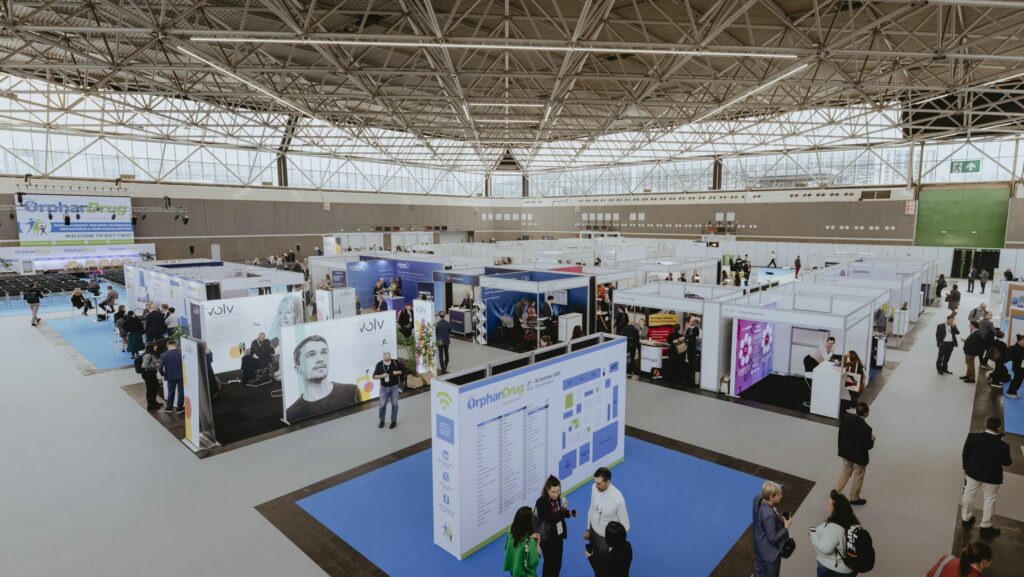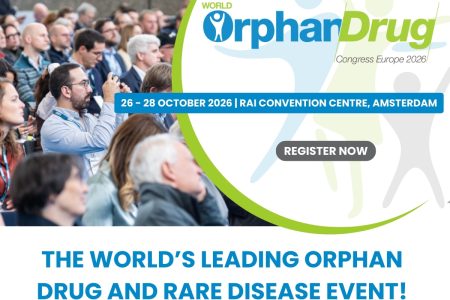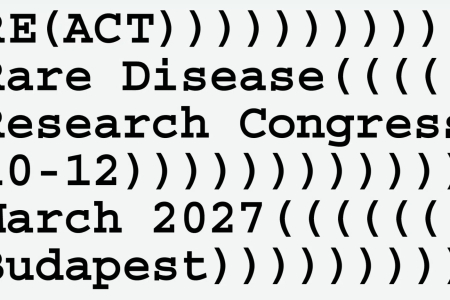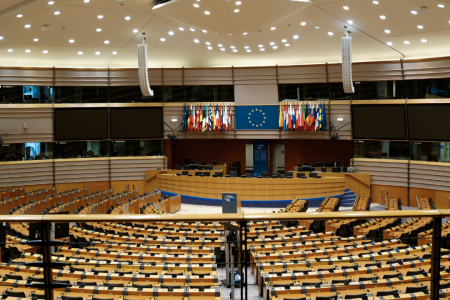ERDERA closed three productive days at the World Orphan Drug Congress Europe 2025 in Amsterdam, where partners from research, industry, patient organisations and public authorities shared practical routes to faster, better decisions for people living with a rare disease.
Discussions converged on interoperable data, credible modelling and trial designs that are proportionate to small, heterogeneous populations, alongside earlier and more equitable diagnosis. The congress took place at the RAI Amsterdam Convention Centre, with 27 October as workshop day — with ERDERA taking the stage — and the main programme on 28–29 October.
On 28 October, ERDERA Coordinator Daria Julkowska joined a panel of experts’ discussion on the innovative toolbox for OMPs (Orphan Medicinal Products), noting a change of paradigm in financing projects towards one more focused on transnational alignment. She advocated for early dialogue with regulators and HTA bodies, ensuring that quality real‑world data (RWD) can also be considered throughout the evaluation process.
During the Congress, regulation and policy were a strong thread. A working group on “Competition of regulatory ecosystems in approving medicines: policy implications in the case of Europe” featured Viviana Giannuzzi, Head of Research and Innovation dept, Fondazione per la Ricerca Farmacologica Gianni Benzi Onlus’s, alongside EMA and industry experts.
The session examined how the EU regulatory pathways shape development choices and timelines of orphan medicines, and what this means for Europe’s competitiveness and patient access in rare diseases — set against the ongoing pharmaceutical legislation reform. Streamlining procedures, aligning national ones, interacting early and properly with regulators will be pivotal to reduce uncertainty ”, noted Viviana, who also highlighted the importance to swift the focus towards incentives and funding outcomes.
Patients at the centre
Diagnosis and patient‑centred care were prominent across the programme. In a workshop on digitally‑enhanced care for rare diseases, MetabERN’s Coordinator, Professor Maurizio Scarpa, discussed the systematic need to include the lived experience of patients in how data are analysed and interpreted, so that models and endpoints reflect what matters to them.
The discussion drew on the European Reference Networks (ERNs)’ experience, including newborn screening initiatives and digital tools for metabolic diseases, and connected to the EU Joint Action on integrating ERNs into national systems (JARDIN). These perspectives were echoed in additional working groups on patient experience data and equitable newborn screening, underlining the need to embed patient‑generated insights throughout the product lifecycle.
Full steam ahead
These developments respond to well‑recognised challenges in rare diseases — limited patient numbers, heterogeneity, and the need for proportionate, patient‑relevant endpoints — and speak directly to ERDERA’s work areas on Clinical Research, Data, and International Alignment.
Dates for upcoming editions were confirmed. World Orphan Drug Congress USA will convene at the Boston Convention & Exhibition Center on 9–11 June 2026 (with workshops on 9 June). In Europe, the congress returns to Amsterdam on 26–29 October 2026, with RAI Amsterdam repeating as venue.
“This one of the key events in the field as it offers a unique opportunity to meet stakeholders who are not usually present elsewhere — especially in the context of public–private partnerships,” said Daria Julkowska. “Here, we can connect with industry representatives, smaller enterprises, policymakers, and other organisations. For us, being able to share what ERDERA is doing and to listen to others opens new possibilities for collaboration, potential investments, and other valuable opportunities.”





